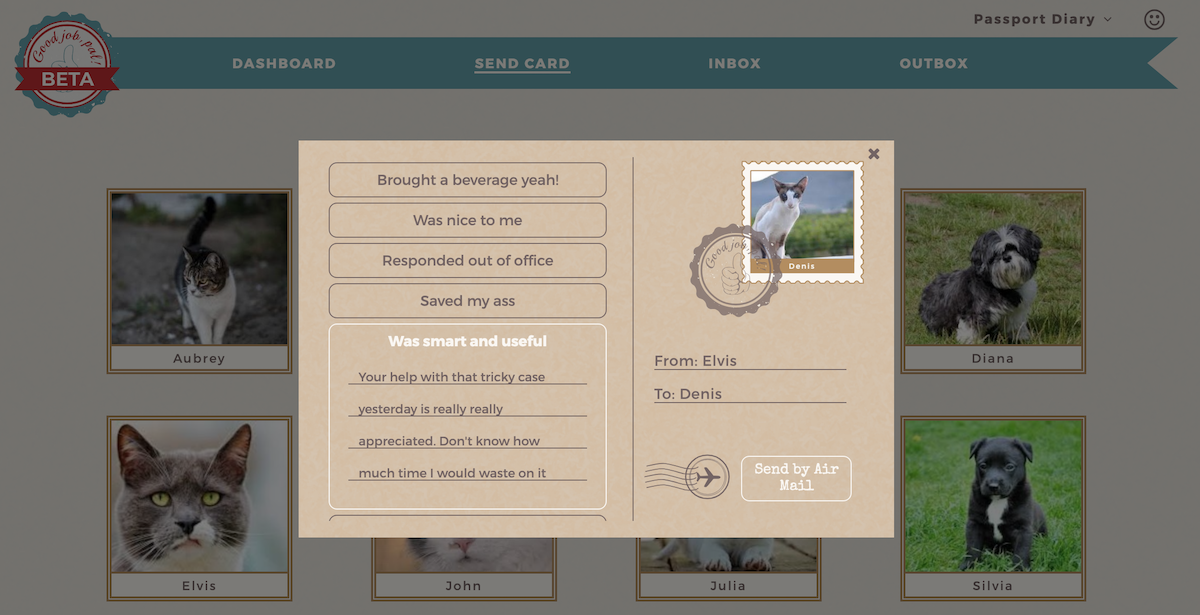Polls show that people feel under appreciated and we take things for granted. Where is the gratefulness of the previous times? Have we become bad people? Are we just lazy or busy? In this blog post I will explain importance of saying Thank you, list some reasons for these issues and offer a solution to make things better.
Why saying Thank you is important?
We know that a “Thank You” goes a long way. We know that intrinsically without thinking about it. It is one of those things that you just do because you were taught so as a child and you just feel like it. According to scientific studies the important aspects of saying thanks are:
- Social connections – saying Thank You helps to build new relationships as well as maintain and make existing ones stronger.
- Appreciation – often we do things because we just have to or because we want to, but receiving thank you makes us feel even better in the end.
- Happiness – many studies show that there are many benefits for the person saying “Thanks” – peace of mind, happiness and even physical health.
For example the study “A little thanks goes a long way: Explaining why gratitude expressions motivate prosocial behavior” shows that showing even a little gratitude can increase productivity and motivation and make us feeling socially more valued. Moreover a study from Gallup says
“Recognition not only boosts individual employee engagement, but it also has been found to increase productivity and loyalty to the company, leading to higher retention.”
Do you think you are saying “Thank you”?
Even though we all know that appreciation and being thankful is so important this study shows that we are saying thank you way less than we might think. On average only around 1 of 20 occasions of doing a favor to someone received a vocal expression of gratitude. This differs by language, culture and other aspects, but still – way too often we just take the help of others for granted. Perhaps we show the appreciation in different ways such as our body language, a warm look or a pat on the back, but that can be not enough.
This has a potentially huge impact on every aspect of our lives – family, friends, colleagues. All of them would like to feel more appreciated and we would like to feel more appreciated by them. Take my team of smart, professional and kind people as an example. They were expressing their concerns of not understanding if they are doing a good enough job and if they are appreciated by their team mates. How can that be if they work together every day and are doing a great job in my opinion? My answer is – they are so close that they forget to say thanks and assume help as something simply normal and expected.
Think about that. How many times you have received help yourself and just accepted it as something expected? From your partner, team mate, friend or colleague? I bet a lot. In my case I realised I am more ungrateful to people close to me which is even worse.

Shyness and introversion can suppress verbal thankfulness
Why are we not thanking others?
What are the ways how to change this? I was teaching myself and my team to give feedback, explained why it is important, made sure I thank them more often myself. But improvements were minimal. Here are the main obstacles in my opinion:
- shyness – these are IT people who are mostly introverts and need to put in extra effort and courage to look someone in the eyes and say thank you
- culture – Latvians are famously introvert as found by BBC and I really agree with that assessment
- flexible hours and remote work – often my team would work from different locations in different times and see each other maybe for a day a week. How easy it is to remember that you needed to thank someone for something she did 4 days ago?
- online work – when you are working online most of the time you also receive help online and saying thanks often is cumbersome. Sure you can send a Thank you e-mail, say thanks in a chat and even write a note, but often it’s hard enough to just skip it
- laziness – humans are lazy. Saying thanks is hard enough because you have gotten what you needed anyway, right? Who cares about the future
It is not enough to say thank you. It needs to be also heard. It is like making a phone call – both people need to be online and available. It is much easier to send a message. Good Job Pal is like whatsapp for saying. thank you.

Sending personal thank you card can mean a lot
Possible solution for building thankfulness habit
What would solve these issues? Online recognition software of course! As part of one of our internal hackathons we made the first version of peer-to-peer recognition platform Burty. It was received incredibly well. On average each employee left more than 50 thanks a year. We started to have employee of the month competitions and helping each other became visibly more popular. Our fresh hires said they haven’t seen such helpful colleagues before. Both new and experiences employees felt more appreciated and motivated.
It worked so well I decided to share this with the world and Good job, Pal! was born. It is a peer-to-peer (I prefer person to person) recognition platform where anyone can say Thanks with two clicks. It it so simple that there is no reason not to. You can say thank you in the middle of the night, from the other side of the world and without looking in the eyes.
Moreover – you can define reasons for being thankful. It allows your team to agree what are the values to encourage and support. For us it is being available in case of emergencies, just being nice to each other, being smart and helpful and even bringing a cup of warm beverage or some food to someone.
A tool for management
As a result something impossible before can be done – you can quantify social climate. Who thanked whom? For what? How often? Who is the most helpful person? Who is not that grateful? Those are all very valuable insights for any team leader as they allow to predict issues you could predict only with your gut before.
I have heard questions – but what if the person coming last on the scoreboard feels offended? But which is better – being able to spot that and help that person or hiding away from it? This us why Good Job, Pal! is a valuable diagnostics tool for every team leader who wants to build healthy teams.
Whatever your team does – be it a book club, restaurant, software house or perhaps even your family – you should try Good Job, Pal! for free by signing up for an account on goodjobpal.com.


Trackbacks/Pingbacks